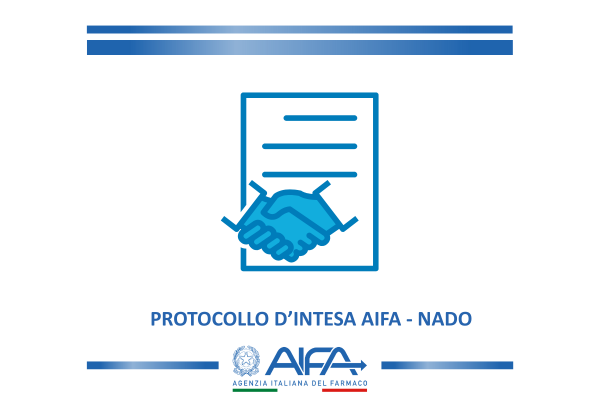.png) Agenzia Italiana del Farmaco
Agenzia Italiana del Farmaco
GMP inspections and authorisations - raw materials
AIFA is responsible for coordinating and managing inspections to verify compliance with Good Manufacturing Practice (GMP) of manufacturers and importers of active substances, located in Italy.
The inspections are carried out in Italy, both for issuing the authorisation/registration for manufacturing and/or import, and for renewing an authorisation/registration already issued, and concern the primary manufacturing of medicinal gases.
Such periodic inspections, in addition to protecting public health, provide companies with the opportunity to obtain a GMP certificate, to be used for registration or marketing purposes in EU or non-EU countries. Inspections may also be conducted at the manufacturing plants located in non-EU countries, based on a relevant interest by AIFA or upon the manufacturer’s request.
Types of national GMP API inspections
National preventive inspections:
These are inspections that can be carried out to:
- activate a new plant for manufacturing and/or import of active substances;
- activate a new manufacturing department or a new manufacturing line;
- reactivate departments or manufacturing lines for which a suspension order has been issued;
- authorise manufacturing or import of new active substances, sterile and/or of biological origin, and essential changes, pursuant to Art. 50 in conjunction with Art. 52-bis of Legislative Decree 219/2006 and subsequent amendments;
- register the manufacturing or import of new active substances, non-sterile and/or not of biological origin, and essential changes, pursuant to Art. 52-bis of Legislative Decree 219/2006 and subsequent amendments, should AIFA deem it necessary based on a risk assessment.
National follow-up inspections:
These inspections can be carried out to verify the GMP compliance of the corrective actions declared as implemented by the manufacturing plant in the follow-up phase of a previous inspection.
Periodic national inspections of general revision:
These inspections are carried out with variable frequency depending on the risk assessment, as required by Art. 53 of Legislative Decree 219/2006 and subsequent amendments.
During these inspections, a complete review of the whole activity of the manufacturing plant is carried out on a sample basis, including the number and type of complaints, rejections, returns, etc., in order to identify compliance with GMP and any areas where deviations from GMP are most likely to occur.
Following these periodic inspections, aimed at protecting public health, once compliance with GMP is confirmed, the GMP Inspections and Manufacturing Authorisations of APIs Office renews production/import authorisation/registration and provides companies with a GMP certificate, to be used for registration or marketing purposes in EU or non-EU countries.
Extraordinary or control inspections:
Extraordinary inspections compared to the normal general inspection programs, ordered for public health protection.
Inspections upon motivated request of other AIFA offices:
Inspections requested by the Product Quality and Pharmaceutical Crime Counteracting Office, by the Post Marketing Surveillance Department and by the Medicinal Products Authorisations Department.
Joint inspections with the GMP Inspections and Manufacturing Authorisations of Medicinal Products Office
Inspections for national plants manufacturing both active substances and medicinal products or carry out primary and secondary manufacturing of medicinal gases.
The above national inspections can also be carried out without prior notice.
EMA inspections, international and non-EU inspections
The EMA inspections are required by the CHMP to verify the GMP compliance of non-EU manufacturing plants of active substances contained in medicines authorised under the centralised procedure.
International inspections in collaboration with EDQM, PIC/S or WHO are carried out in cooperation with the organisation requesting the inspection.
Non-EU inspections scheduled by AIFA are carried out by AIFA if there is a significant interest in the imported API for the purposes of manufacturing medicines whose marketing authorisation in Italy was issued by AIFA. These inspections are therefore mainly required in the assessment phase, but can be scheduled if, in the context of international information exchange programs (such as the "API International Program"), possible non-compliance of the plant in question have become known or if the non-EU plant manufactures APIs used in medicines marketed in Italy. These inspections can also be carried out upon request by the non-EU producer for the purpose of issuing the GMP certificate. Finally, such inspections can be carried out due to lack of “Written confirmation”.
Typology and classification of deviations
GMP deviations are defined, according to the document "Compilation of Community procedures in inspections and exchange of information", in particular in the chapter "GMP Inspection Report - Community format" EMA/INS/GMP/313539/2006 Rev. 17 of 3 October 2014 and any subsequent updates ", as indicated below:
Critical deviations:
deviations which have resulted in, or entail, a serious risk of manufacturing a medicinal product that is dangerous to humans.
Major deviations:
or non-critical deviations, which:
- have caused or may cause the manufacture of a medicine that does not comply with the relevant Marketing Authorisation;
- show a significant deviation from GMPs;
- show a significant deviation from the production authorisation conditions;
- lack in the application of satisfactory procedures for the release of batches or their absence, or the non-compliance with legal obligations by the qualified person;
- a combination of several "other deviations", none of which alone can be regarded as a major deviation, but which can collectively constitute a major deviation and must therefore be described and assessed as such.
It should be emphasised that multiple "major" deviations in a specific sector can globally reach the "critical" deviation level and therefore require the related intervention.
Other deviations:
the term “other” deviation refers to a deviation that cannot be classified as either critical or major, but which, however, highlights an incorrect application of the GMPs.
(A deviation may be classified as “other” either because it is judged to be a minor deviation or because there is insufficient information available to classify it as major or critical).
Pre-inspection documentation
In case of general review inspections, extension inspections, follow-up inspections, activation inspections, in order to allow the inspectors a preliminary and overall examination of the documentation related to the manufacturing/importing plant, AIFA requests the following documentation from the concerned Company:
- an updated technical report on the manufacturing plant, pursuant to Ministerial Decree 18/03/1996 and Volume 4 - Part III of Eudralex: "Explanatory Notes on the preparation of a Site Master File", including:
- organisation chart (key figures);
- plans indicating the lay-out (personnel and material flows)
- plans with room classification (in the case of manufacturing in controlled areas);
- list of manufacturing and control equipment;
- plans with indication of the layout (flows of personnel and materials);
- P&ID of utilities;
- list of pharmacologically active raw materials manufactured/imported into the plant, indicating authorisation/registration details, “manufacturing type", any polymorphisms and any special requirements;
- validation master plan and updated list of qualifications and validations;
- list of Standard Operating Procedures used at the plant;
- list of complaints received since the last general revision inspection with a summary of the types and outcome;
- description of the IT systems with GMP impact used in the manufacturing plant and related validation plan.
Risk mapping for inspection planning
Pursuant to Legislative Decree no. 17 of 19 February 2014, the GMP Inspections and Manufacturing Authorizations of APIs Office carries out the risk mapping as part of the planning of general periodic review inspections. The purpose of the mapping is to establish, through an appropriate risk assessment, an inspection frequency to define the validity of the GMP certificate; this validity will have a duration consistent with the assigned re-inspection frequency.
AIFA has the right to re-evaluate the risk profile following inspections subsequent to the general periodic review, with the consequent updating of the GMP certificate, whose duration could be modified on the basis of possible changes in the risk profile.
For the purposes of administrative transparency and in compliance with art. 50, paragraph 8, of the Legislative Decree n. 219 of 24 April 2006, as amended by the Legislative Decree n. 17 of 19 February 2014, the list of manufacturing sites authorized/registered for production/importation of active substances and manufacturing sites registered for the production/importation of medical gases as active substances is available updated to June 30, 2025.
Manufacturing sites that exclusively carry out the activity of importation of active substances as marketing authorization holders or medicinal product manufacturers are highlighted in gray in the list.
Any mistake, must be reported, with supporting documentation, to the following e-mail address: protocollo@pec.aifa.gov.it
17/02/2026
16/02/2026







